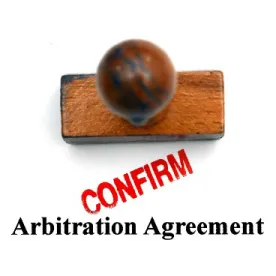A recent decision by the Abu Dhabi Court of Cassation in Case No. 922 of 2020 has confirmed that a party’s representative (Representative) acting under a power of attorney (POA) will only have the authority to enter into an arbitration agreement on behalf of the party it represents (the Principal) if the POA grants the Representative the authority to do so in clear and unambiguous terms.
Background Facts
A contractor (Contractor) entered into two subcontracts with a subcontractor (Subcontractor) for construction works (Subcontracts). Both Subcontracts contained arbitration agreements (Arbitration Agreements). The Subcontractor’s representative (Subcontractor’s Representative), who was acting under a duly notarized POA (First POA), signed the Subcontracts on behalf of the Subcontractor. The First POA granted the Subcontractor’s Representative full power and authority to act on behalf of the Subcontractor, but that authority was stated to be without prejudice to Article 58(2) of the United Arab Emirates (UAE) Civil Procedures Law.1 Article 58(2) of the UAE Civil Procedures Law states that no admission or waiver of a right, settlement, or submission to arbitration may be made without special authority. Several years later and after completion of the Subcontracts work, the Subcontractor granted a further POA to its representative (Second POA). The Second POA granted the Subcontractor’s Representative all the powers of company management and the power to perform the acts described in Article 58(2) of the UAE Civil Procedures Law, which includes the authority to bind the Subcontractor to arbitration agreements.
A dispute arose regarding the Contractor’s failure to pay amounts due under the Subcontracts. The Subcontractor commenced proceedings before the Court of First Instance, which dismissed the claim due to the existence of the Arbitration Agreements. On appeal, the Court of Appeal upheld the judgment of the Court of First Instance. The Court of Appeal relied upon the authority granted to the Subcontractor’s Representative by the Second POA to perform the acts contained in Article 58(2) of the UAE Civil Procedures Law, and it held that the Second POA ratified the earlier Arbitration Agreements. Upon further appeal, the Court of Cassation reversed the ruling and held that the Arbitration Agreements were void and unenforceable. The Court of Cassation therefore remanded the case back to the Court of First Instance for adjudication of the merits of the claim.
In reaching this decision, the Court of Cassation held that, at the time of signing the Subcontracts, the Subcontractor’s Representative did not have the authority to agree to resolve disputes by arbitration, which authority must be clearly established without any ambiguity or doubt. The Court of Cassation rejected the argument that the Second POA was issued to confirm the Subcontractor’s Representative’s authority to sign the Subcontracts and operates as a subsequent ratification of the Arbitration Agreements. Although it is possible to ratify an existing arbitration agreement, there was no such ratification in this case. The Second POA was granted after the completion of the Subcontracts work and was only applicable to new contracts.
Analysis
In the United Arab Emirates, an arbitration agreement is generally still considered an exceptional arrangement whereby the parties agree to resolve disputes by arbitration rather than through court litigation. The UAE Civil Procedures Law is clear that any submission to arbitration requires special authority (e.g., a POA).
The Abu Dhabi Court of Cassation’s decision in this case confirms that the authority granted under a POA will be narrowly interpreted and that, in the event of any ambiguity or doubt as to the Representative’s authority to bind the Principal to arbitration, it is likely to be decided that there is no valid and enforceable arbitration agreement.
This case emphasizes the importance of clear and precise drafting when preparing a POA. If the Principal intends to grant its Representative the authority to enter into arbitration agreements on its behalf, that authority should be clearly and expressly stated in the POA to reduce the risk of challenges to the enforceability of the arbitration agreement and subsequent disputes over jurisdiction.
1 Federal Law No. 11 of 1992, as amended.





 />i
/>i

